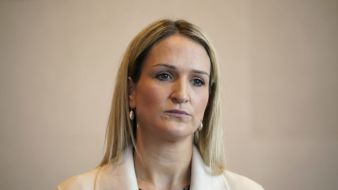Young men are almost five times more likely to watch pornography than young women, a report from the Economic and Social Research Institute (ESRI) has found.
This report draws on the Growing Up in Ireland (GUI) study to look at pornography use among over 4,500 young adults at 20 years of age.
The study has shown 64 per cent of 20-year-old men watch porn, compared to 13 per cent of women the same age.
Men who use pornography have poorer wellbeing than non-users, being less satisfied with their lives, reporting more depressive symptoms and having a poorer self-image.
Men from more advantaged backgrounds are more likely to use pornography, and this pattern is not explained by their greater use of the internet in general.
The study showed men from lone-parent families were less likely than others to use pornography, while rates of use were higher for women from lone-parent families.
The study also found those who use pornography have higher levels of aggression and are more likely to cope with stress by using negative strategies, such as drinking alcohol or drug-taking, or taking to their bed.
LGBTQ+ groups, especially women, are more likely to use pornography, which may reflect information-seeking among this group or their lack of contact with other members of the LGBTQ+ community.
The study also found those who watch pornography are less likely to wear condoms, with regular condom use is reduced by around half of men.
Emer Smyth, one of the authors of the report, said: "Poorer wellbeing is found among pornography users, especially men. There is value therefore in addressing use, and potentially problematic internet use in general, through mental-health promotion measures."
Helen Deely, assistant national director for HSE Health and Wellbeing, added: "The findings of the research underscore the importance of talking to young people early and often about relationships, sex, consent, gender roles and expectations, and of creating an environment where they feel safe asking questions and talking about what they see online."







